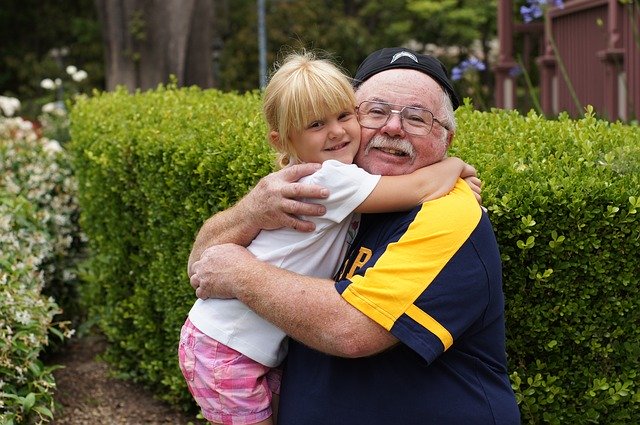Parents and caregivers of children with autism and ADHD can experience both joy and overwhelm from caring for their child. That is why it is so important that there is a good support network for families of autistic/ADHD children.
But how do you create that support network? It is important to look at support holistically instead of in siloes of personal support and expert support.
I used to feel so isolated and unwelcome when our son J was younger. I felt like no one was there to help my husband and me because we didn’t have a strong family and friend network. Yet, when I look back to those years and at the present today, I realize we had and have more support than I thought. I had to broaden my perception of support. We definitely could not have made this journey alone, and I’m so glad that we didn’t.
Here are some things to think about when considering your own support network for your child and your family:
1. Determine which extended family members and friends can help

If you have a good relationship with your extended family, then some (or maybe several of them) would be willing to help. Are there grandparents willing to provide some respite and moral support for you? Any of your siblings who can be an ear to listen when you need to talk or have their kids (your child’s cousins) be friends and play with your child?
When J was young, he wasn’t invited to many birthday parties for other kids. Yet, he was always invited to his cousins’ birthdays, which gave him some fun experiences. Attending birthday parties is something I think most parents take for granted. For those of us who have kids on the autism spectrum, we know those can be cherished invitations.
Then what about friends? True friends stick around to support you, even after your child receives an autism diagnosis. Being able to call or have friends over to your house can help your mood and lighten your load a bit.
2. Consider a local support group
If you have a local autism or ADHD support group in your area, consider joining it. Support groups are a wonderful place to meet other parents of kids with autism/ADHD and make long-term friendships. The best thing is that they can relate to your joys and struggles because they are on the same journey.
To find a local support group, first try a search in Google or other search engine for “autism or ADHD parent support groups near me.” That may bring up some listings for you.
If that does not work, try these other sources to find out if there is a local group:
- National Autism Association’s support group finder
- Autism Connect Directory
- CHADD local chapters
- Autism Source (from The Autism Society)
- Your local Meetup
3. Create a “dream team” for your child

They say it takes a village to raise a child. What I’ve learned is part of that village needs to include a “dream team” of experts to support your child with autism/ADHD and your family.
I have found that some members of J’s dream team support us as parents just as much as they support him. For example, J’s behavioral therapist supports me as a parent by providing the training and the encouragement I need to help J work through his issues. She coaches me and helps me see when I’m on the right track or not. I don’t think we could have gone through this journey without her. These experts can be a key part of a support network for families of autistic/ADHD children.
4. Partner with your child’s teacher(s)
Your child’s teacher at school is an important part of their life. That includes their teacher(s) in the classroom as well as their speech therapist, teacher’s aide, guidance counselor, librarian and others who work with your child at school.
Having a good relationship with them can extend to your family as you all work to support your child. Our son J had especially supportive teachers in second, third and sixth grades in elementary and middle school. I still enjoy running into his second grade teacher at the store! They not only helped J in school but extended that support to us as parents in partnering with us. I truly appreciated their efforts and their kindness toward our family in general.
5. Get help for yourself
Being a parent or caregiver of a child on spectrum can be overwhelming. Many parents struggle with challenges of their own such as depression, anxiety and other health conditions. Because both autism and ADHD are hereditary, some parents are diagnosed themselves after their child receives a diagnosis. Regardless of whether a parent/caregiver is diagnosed with any condition, they deal with a lot of stress due to caring and managing their child’s behaviors.
If you need help, talk to your doctor and be sure to obtain the help you need for yourself. You can better care for your child if you are receiving the care and support that you need.
In addition, make sure you are taking time for self-care. Remember that there is a reason why flight attendants tell us to put our oxygen masks on first before helping others with theirs.
6. Enroll in parent training

If you are struggling with helping and handling your child’s behavior challenges, parenting training or coaching can help. Your trainer/coach can provide needed support to your family. You can research options in your area. One place to start is with the national Center for Parent Information and Resources. There is a local center for each state, and it is funded through a program from the U.S. Department of Education. They can be an important resource for creating a support network for families of autistic/ADHD children.
7. Research community resources
Many communities offer different activities and resources for families. For example, our son J runs track for our county’s Special Olympics team. It is a great program and organization. Over the years, we’ve come to appreciate the supportive community that the team provides. He also used to attend a monthly “Different Like Me” group for tweens and teens on the autism spectrum. We got to know some of the other parents who would hang around the library while our kids were in the group playing board games and learning social skills.
Take some time to research those activities or contact your local support group to see what resources are available to your family and your child. You may be surprised to see what is offered that you didn’t know about before.
8. Look for online support

Don’t feel like you have time or the means of transportation to go to a live group? Try looking for a group on Facebook or one of these online groups:
In addition, there are many online parent training courses and websites available that offer forums and support information.
9. Consider your family pet as part of your support network

Your family pet offers wonderful support to your family. They offer love, affection and entertainment. In fact, dogs have shown to bring a variety of benefits to kids with autism and ADHD. However, cats, guinea pigs, fish and other pets bring stress relief and support to your family too. Be sure to count them as part of your support network!
10. Find a trusted work colleague(s)
Research has found that having a friend in the workplace helps you feel more positive about your company and your job. Work colleagues can also provide needed support for you. Depending on your workplace’s environment, it can be a bit tricky. Yet, I know that having a few good friends at work has gone a long way for me over the years. They understand the bigger picture and have encouraged me when times get tough.
11. Don’t forget your neighbors
Your neighbors also can play a role in your support group. When J was growing up, our neighbors across the street were especially supportive of him and our family. They stepped up so many times to offer help such as meals when one of us was sick, watching our kids and being the safe place for our kids to go if they ever came home from school and one of us wasn’t home yet. Now that we live in a different neighborhood, we have some fabulous neighbors again. They too are part of our support network.
You may have others who can or are part of your support group such as people from your church or other organizations/groups in which you may be involved. Taking a holistic view may open your eyes to more of a support network than you thought you had. What suggestions do you have for how to create a support network for families of autistic/ADHD children? Leave a comment and let’s encourage one another!







